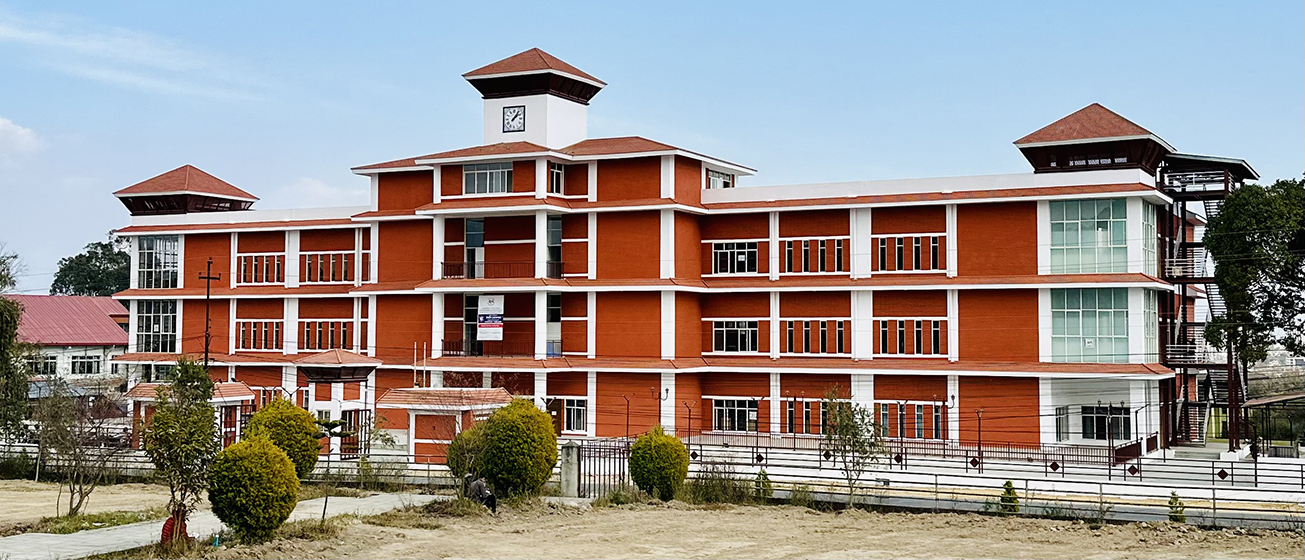Welcome to TUCL Repository
- Access to a vast collection of academic theses and dissertations
- Wide range of scholarly journals and articles
- Search and browse functionalities for easy discovery of resources
- Accessibility to digital resources anytime, anywhere
- Facilitates research and learning endeavors of TUCL community
- Promoting open access to knowledge and research findings
- User-friendly interface, ensuring ease of navigation and accessibility for users of all levels of expertise
- unique persistent identifier (such as DOI or Handle) to facilitate citation, tracking, and long-term preservation, ensuring the integrity and longevity of scholarly contributions

Communities in DSpace
Select a community to browse its collections.
Recent Submissions
Effect of changes in tax policy on corporate investment decision
(2025) Bhusal, Arpan; Joginder Gote
This study seeks to comprehensively examine the connection between effective tax rates,
income tax expenses, and deferred tax rates in relation to investment decisions, with a
specific focus on how these fiscal elements affect organizational capital allocation
choices. It concentrates solely on the effect of tax policy changes on corporate investment
behavior, acknowledging that tax-related factors can heavily influence strategic planning.
Primary data was gathered from individuals directly engaged in financial and investment
decision-making within organizations. SPSS software was used to process the data,
employing various statistical techniques such as regression and correlation analysis to
evaluate both the strength and nature of the relationships. In this analysis, corporate tax
rates, financing policies, and tax education acted as the independent variables, while
investment decision was treated as the dependent variable. The correlation analysis
demonstrated a strong positive relationship between corporate tax rates and financing
policies with investment decisions, implying that favorable tax systems and effective
financing strategies foster higher investment levels. Although the link between tax
education and investment decisions was weaker, it remained positive, indicating some
degree of influence. Overall, corporate tax rates, tax expenses, deferred tax rates, and tax
knowledge were recognized as critical determinants of investment choices. Moreover,
regression results confirmed that tax rates, tax expenses, and deferred tax significantly
and positively affect investment decisions. These results underscore that favorable tax
environments and well-managed fiscal policies can enhance investment activity, thereby
supporting more efficient and strategic investment decision-making.
Keywords: Investment Decision, Tax Rates, Tax Expenses and Deferred and Tax.
Idealization of nation-state in Raja Rao‘s Kanthapura
(2024) Gurung, Sita; Shiva Rijal
This dissertation through postcolonial approach has analyzed Raja Rao‘s
Kanthapura to investigate into endeavors for Indian independence by the residents of
Kanthapura that represents India. The research has been an investigation for cultural
and social barriers to the success of Indian Struggle against colonizers who divided
people of India in terms of caste, class and religion that impaired the fair mission of
Gandhi for Swaraj through non-violence. The study has employed the postcolonial
theory to look into the problems in the contemporary Indian society that needed
unification for victory against British colonial rule. Moorthy, a revolutionary leader of
Indian Independence Movement as depicted in the novel strives to unite people from
different sociological categories by boycotting the established rules of traditional
Indian society that believes in caste differences strictly. However, the dual state of
minds of many characters as portrayed to represent different faiths and castes of
Kanthapura becomes an obstacle to making India great and united.
Impact of government financial and microeconomic indicators on stock market of nepal
(2025) Adhikari, Anuradha; Dhan Raj Chalise
This study examines the impact of government finance and macroeconomic indicators on Nepal's
stock market performance, as measured by the Nepal Stock Exchange (NEPSE) index. Using 15
years of secondary data from 2010 to 2024, sourced from Nepal Rastra Bank and NEPSE, the
research employs a correlational research design to investigate the relationships between fiscal
variables and macroeconomic factors with stock market dynamics. The study utilizes descriptive
statistics, Pearson correlation analysis, and multiple regression techniques through SPSS to
analyze the data. Results reveal strong positive correlations between NEPSE and key variables:
Broad Money (r = 0.914), Private Sector Credit (r = 0.904), Domestic Credit (r = 0.865), and Total
Revenue/Expenditure (r = 0.774). Conversely, Inflation Rate shows a significant negative
correlation (r = -0.611). The regression analysis for government finance variables explains 80.9%
of NEPSE variation (R² = 0.809), with Total Expenditure, Recurrent Expenditure, and Total Public
Debt emerging as significant predictors. For macroeconomic variables, the model explains 86.2%
of NEPSE variation (R² = 0.862), with Broad Money and Inflation Rate being statistically
significant. The findings confirm that both fiscal and monetary policies substantially influence
Nepal's stock market performance. Liquidity availability, government spending patterns, inflation
control, and debt management are identified as key drivers of market movements.
Keywords: Government Finance, Macroeconomic Indicators, Stock Market Performance, Nepal
Stock Exchange, Inflation Rate
